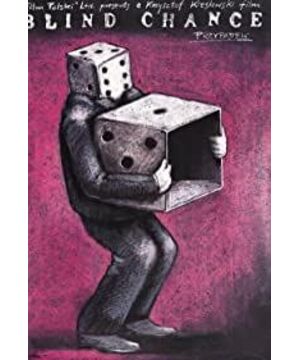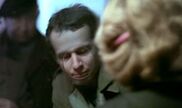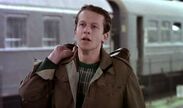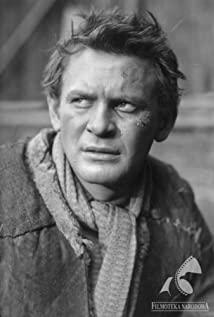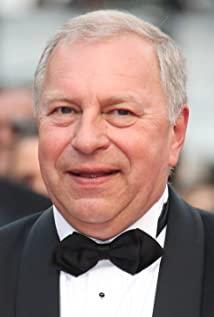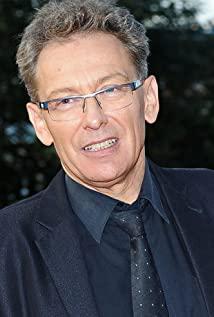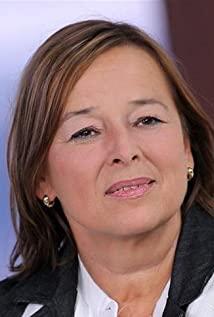The world likes to talk about the XX trilogy, and it also likes to imitate the East. Regarding Kieslovs, people mostly only talk about the red, white and blue trilogy, plus "Two Flowers", which seems to be enough to represent the director's whole; people also like to imitate the three possibilities in the film, until "Lola Quick Run" the proliferation of these bad movies. We have to admit that Kieslovs is too far away from us, as if he never existed.
Using the director's name as the title of the essay may have a peculiar tension. In all honesty, "Song of Opportunity" is probably Kieslovs' best work, at least much better than the later red-white-blue. The film was completed in 1982 and could not be shown in Cannes until 1987. This happened to be when my sister and I were born, and the protagonist kept repeating his birth information, which was also the time of my parents. Yes, that era has long been blurred by our post-80s and post-90s. But because of this, it is more deeply imprinted between our spirit and our flesh as "this" age. Mentions of Kieslovs, mentions of Central and Eastern Europe, mentions of Kundera, mentions of European communist movements, mentions of various experiments, failures, atheism, lack of belief, nothingness of freedom, and even Liu Xiaofeng's book The famous "Heavy Flesh" - this seems to be the horizon from which our barren minds can emerge.
Politics and lovemaking are immortal subjects, wonderful pairs, and perishable traps. Kieslovs doesn't talk much about politics in the later period for some reason, the only thing that won't be absent is the various sex/physical scenes. I thought it was a failed attempt or a purely transitional phase, perhaps in his final plan to talk about religion and politics. Talking about politics is valuable or necessary not because of how profoundly insightful and sharply critical Kieslovs is about politics. Politics is, after all, an extremely boring thing, but it is a necessity. Even if you don't pursue, don't touch, it will chase you like hunger and haunt you like a ghost. After staying in the "Western Free World" for a long time, it seems that I can only talk about loyalty and betrayal in love, because politics has been shattered, there is nothing to talk about, freedom has triumphed, and my former beliefs have been completely overthrown... Kundera's creation also towards such a downturn. The truly great works are not made on the road of exile, in foreign languages or thoughts, but in the language of misery and in a language different from sin. In your hometown you have to live like a foreigner, in a foreign country you have to live like a native. This is the mask of human nature, the fiction of art, the wisdom of philosophy. The horror of freedom lies in its overly beautiful, unfamiliar and even scary beauty. For recent related expressions, please refer to "I grew up in Iran".
Back to "Song of Opportunity". In fact, there are no so-called three life possibilities, the so-called existential questions of choice and freedom, existence and nothingness. Kieslovs is not interested in these myths, or the artist should reject such abstractions. Nor is he obsessed with political disputes, the entanglement of sex and love, the dialectical unity of past and future, memory and forgetting. No, none of this has anything to do with Kieslovs. He is just telling a person, a story, an era that will not pass but has passed. The so-called three possibilities are just expressions, not potentials to be selected or waiting to be realized. All the factors contained in the three possibilities are real and closely related to the male protagonist. Through these three possibilities, the three endings can more fully express the male protagonist. The argument that the environment determines people is an illusion. There has never been any determinism, only real life. As a righteous man, the hero lives like that, no matter what the outcome is. His pain lies in the loss and regain of that subtle sense of mission, faith, love, life or death.
Is Kieslovs pessimistic? Questions like this are boring. When we ask this question, there is no respect for art or thought itself, because the object of questioning is selfishly directed at ourselves. When we conclude that Kieslovs is a pessimist, we are admitting and trying to forgive our own vulnerability and ignorance. Kieslovs' film simply provides an organ. It can be a big mouth, just like the hero's reaction when the plane explodes at the beginning of the movie. It could be a hand with a scalpel moving to dissect the corpse of someone you once knew and hated. It can be the cold eyes watching the spring-loaded toy fall down the stairs, shaking like a dying man. It can be genitals in love, experiencing different bodies, bodies suffering from different pasts, traveling through unknown time and space. Of course, it is still the legs that are desperately running, racing against time, chance, and destiny itself, but it has been walking on the road of its own life...
I once discussed with ono about Kieslovs and Kundera, She has also written relevant text or images. This humble review is dedicated to her.
View more about Blind Chance reviews


